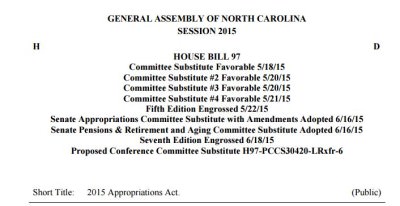Today’s students are not just digital natives; they are digital omnivores. They gobble up everything around them, and they do it in a flash. In fact, it sometimes seems as though students know more about how to manage the digital environment than their teachers. Certainly, today’s teachers know more about how to manage the digital environment than the teachers who taught them how to teach.
It’s an upside-down paradigm. Consequently, we must ask ourselves:
What must be done to change how we approach student learning? How do we change our teacher preparation programs to prepare teachers to guide their students in the digital world?
Technology has changed everything — especially education. But a great number of parents and teachers look at today’s technology devices as nothing more than an electronic textbook, reference tool, or testing platform. Some legislators think that technology-driven education simply means shoving a textbook into a laptop. We must move from technology for entertainment to technology for attainment. There is little understanding around how to use the digital education environment as a teaching and learning tool. I fear that this may result in digitizing old methods, with all the same old problems, instead of creating new pathways.
I believe we must deliver education in a meaningful way that works for each individual student. Approximately 60 percent of this year’s graduating class will have jobs that have not yet been invented. How do we prepare students for jobs that don’t exist? By teaching them to adapt to a changing world with changing technology. That’s what personalized learning is all about.
The first step to fully integrate personalized learning into our educational system is ensuring access to high speed broadband so that all students, regardless of geography or family income, have a chance to succeed. In North Carolina, we completed that step by becoming the first state in the country to put wireless broadband access in every public K-12 classroom, providing access for 1.5 million students. This decade-long initiative took preparation; consistent, qualified, bipartisan leadership; a shared vision strategy; and focus.
The next steps are curriculum and professional development. Today’s educational environment is less about accumulating knowledge and more about developing the skills to apply knowledge. This requires a fundamental change in the delivery of education, first and foremost to teachers. Are we teaching our teachers to operate in a dynamic, changing landscape? Or are we teaching teachers to be teachers in the same way teachers have always been taught?
Schools of education must teach tomorrow’s teachers about one-to-one and personalized learning. Additionally, they must establish standards and competencies for students and teachers to be successful in a digital environment.
Finally, we must address education policy. Extraordinary innovation is happening inside some classrooms right now. But innovation at a state and national level will not happen unless we address the systematic breakdown between practice and policy — the latter of which is too-often based on the idea of “school for the sake of school” and not on meeting students’ needs. District leaders and local, state, and national policymakers must develop and use data to direct education policy, not just inform it. And policymakers must listen to teachers, who intimately understand their students’ needs.
We must meet the needs of each of our students at the point where we find them — both the students struggling to read at a third-grade level and the most gifted and talented students that need to be challenged beyond their reach. A digital education environment, with teachers prepared with the proper tools, competencies, and standards, should be be a springboard to launch every child to their future.
Personalized learning levels the playing field and delivers education in the way that fits each student’s individual needs. It is the job of educators to make sure they are prepared and the job of legislators to make sure educators have the tools and resources they need so that our students are able to succeed now and in the future.



